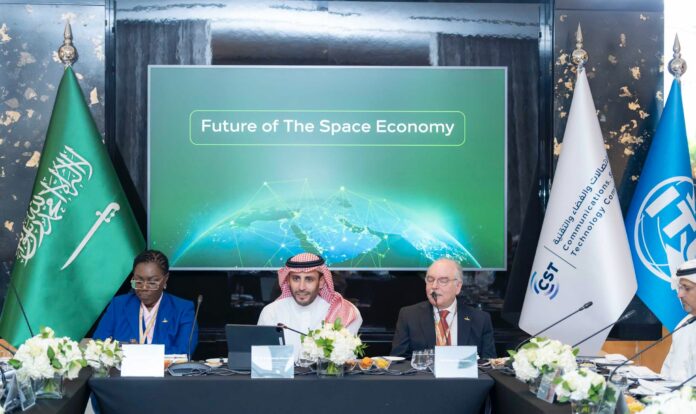MoCD mulls satellite to cellular handset license in Ghana
“We need national stakeholders forum on space economy that will culminate in a national study group on space economy.”
Minister of Communications and Digitalization, Ursula Owusu-Ekuful has hinted that Ghana is considering commissioning a study into how satellite to mobile handset operators can be licensed in the country, just like mobile network operators have been licensed.
She was speaking at the “Future of the Space Economy” session organized by Saudi Arabia on the sidelines of the ongoing World Radiocommunication Conference “WRC23”, with the presence of international Space economy leaders from the public and private sector.
The Minister is at the head of Ghana’s delegation to the WRC23 conference of the International Telecommunications Union (ITU) currently going on in Dubai.
This hint from the minister comes at a time when Elon Musk’s Starlink is working on launching its satellite internet services in Ghana, and Vodacom is also working on satellite to mobile handsets in other markets.
Ursula Owusu-Ekuful stated that “We need national stakeholders forum on space economy that will culminate in a national study group on space economy.”
According to her, the national study group will be charged with the responsibility of carrying out studies on how Ghana can harness space economy as part of its digital transformation, particularly, a proposal on how satellite to cellular handsets can be licensed like MNOs.
She also called for proposals to revise international telecommunications regulations to include space economy, and satellite services without infringements on sovereignty.

Dr. Altamimi indicated that the new Space era is no more limited to few countries and organizations, but it became a dynamic, inclusive and rapidly evolving market. More than 90 countries invested in Space, and over 840 startups entered Space market within the last ten years, with an investment value of more than $40 billion, as the global Space economy is expected to reach $700B to $1 trillion in the coming years. In 2022, Space sector witnessed the largest number of satellites launching, with an average of 50 satellites launched per week.
He also highlighted Saudi Arabia’s efforts in promoting Space sustainability, raising the Space sector’s contribution to the global economy through public-private partnerships, and building its capabilities in satellite manufacturing by owning infrastructures and space-launching capability for Space exploration. Saudi Arabia focuses on building national cadres, encouraging entrepreneurs, supporting startups and enabling investment through an innovative regulatory environment. It also relies on the development programs such as the Space Entrepreneurship Alliance, the Human Spaceflight Program, and the Space Accelerator program to achieve its goals.


